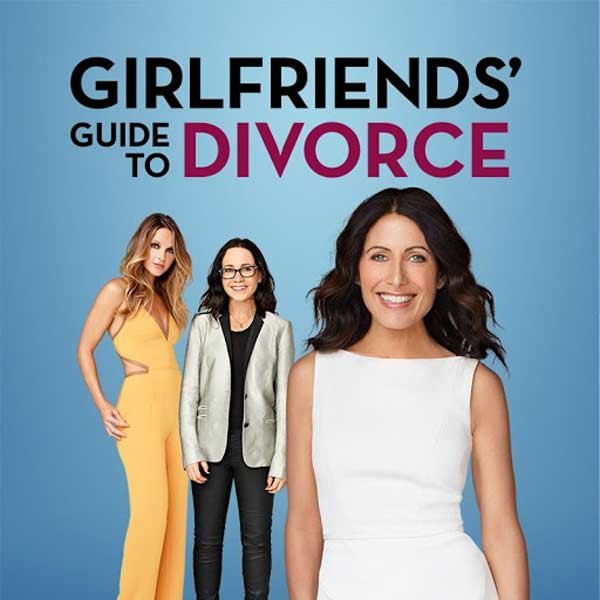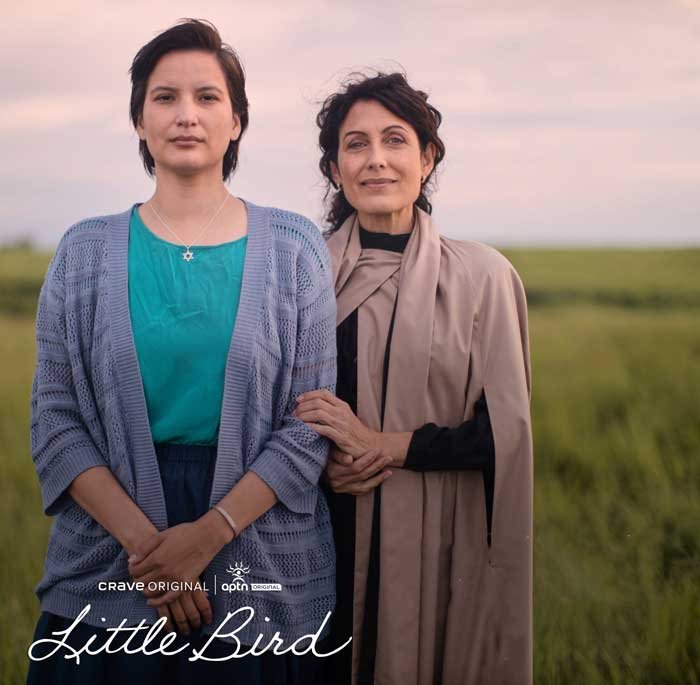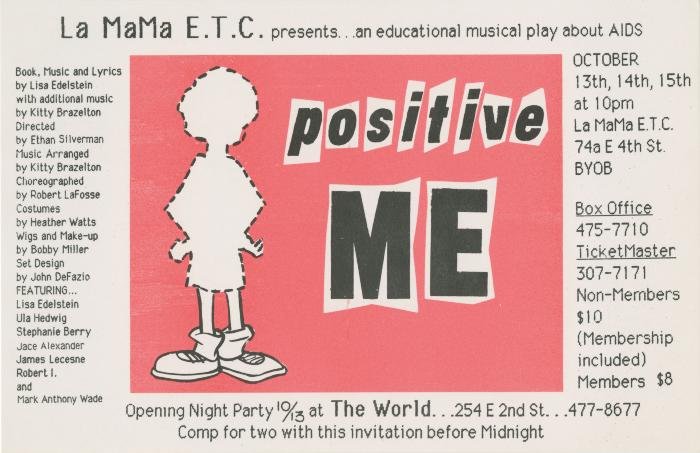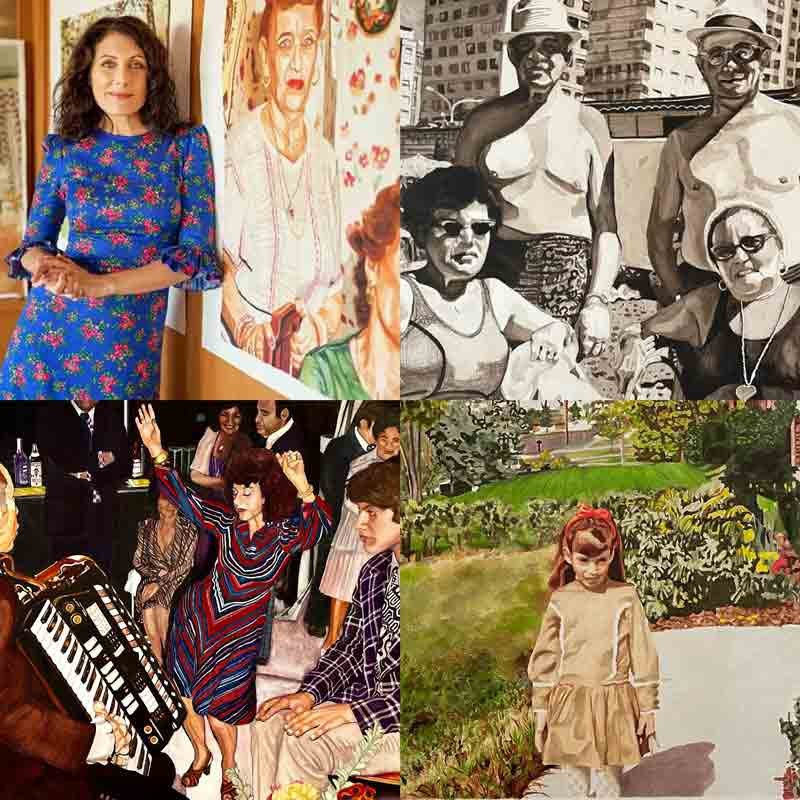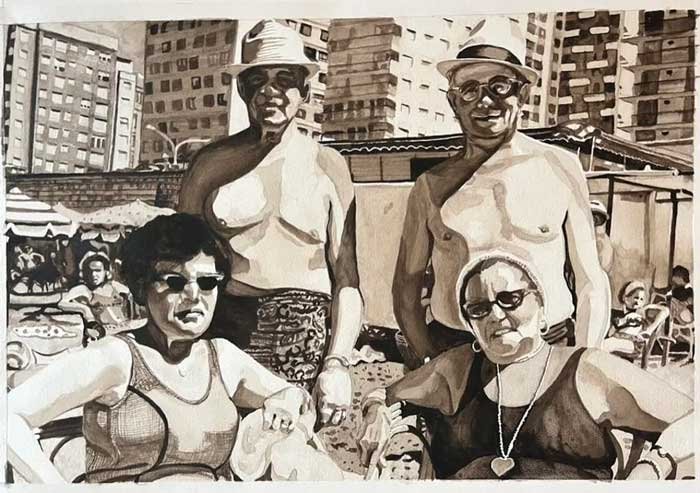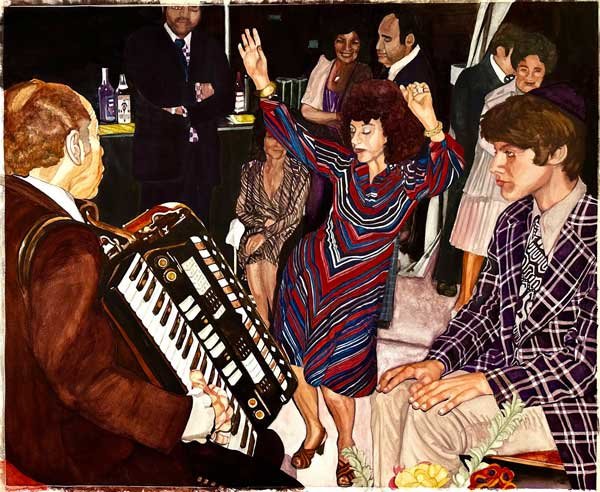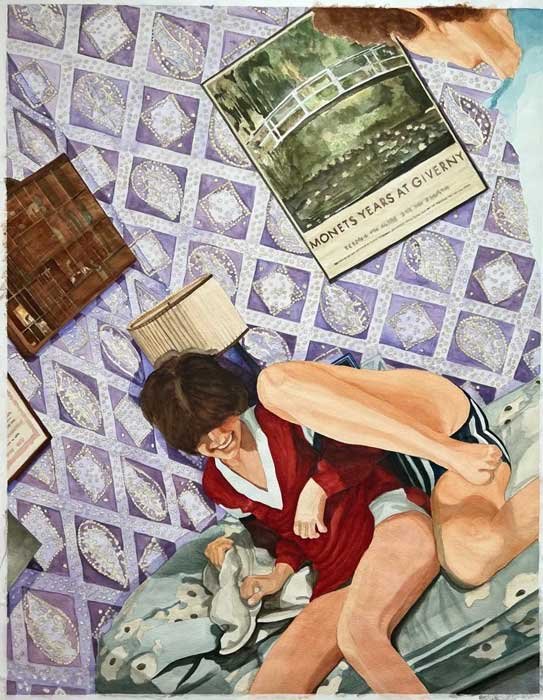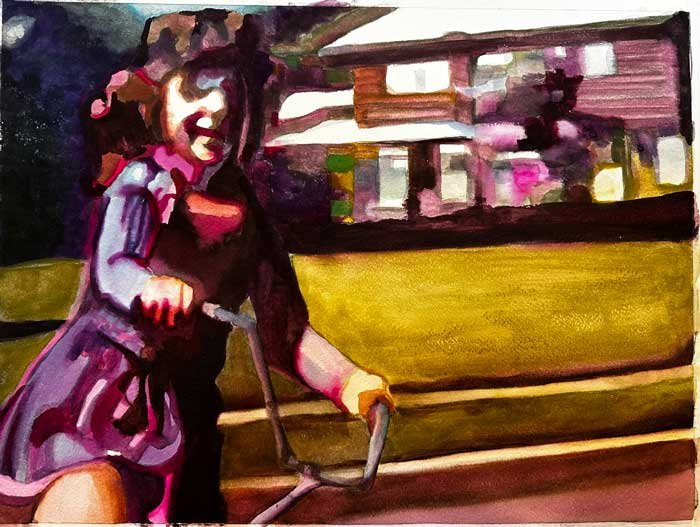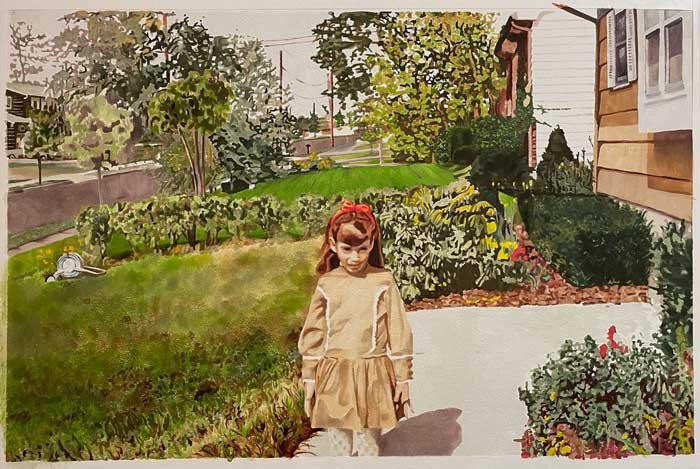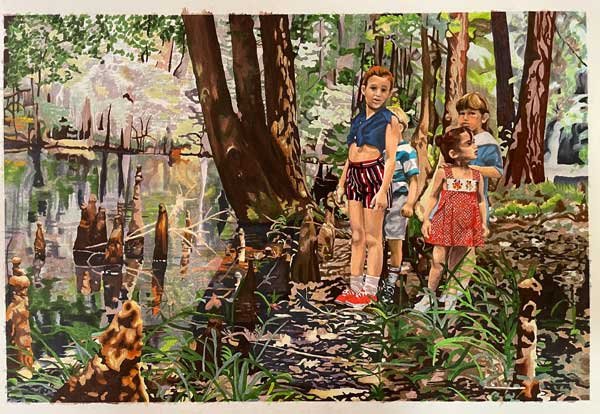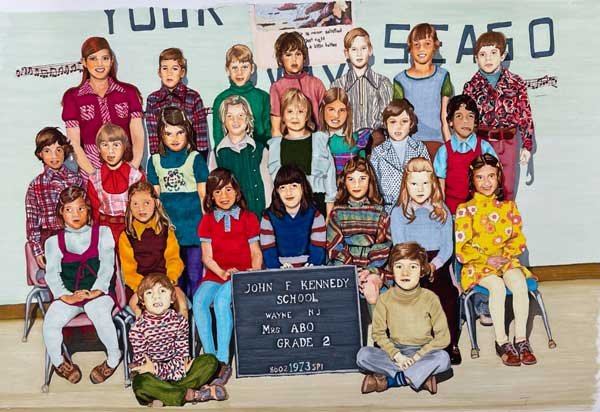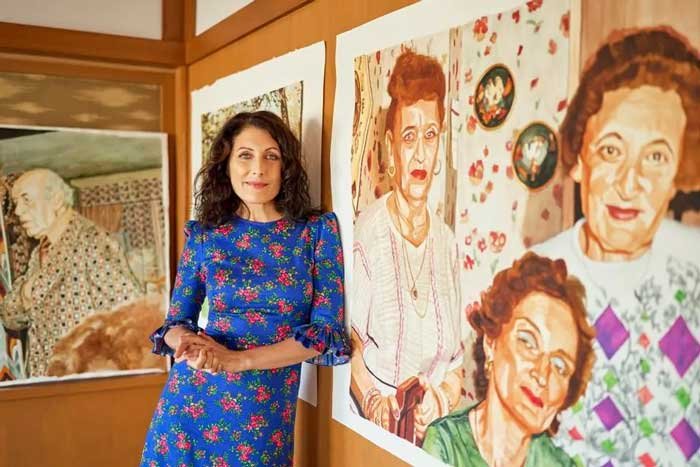How can the arts help us examine and engage with social issues? How do our families shape our views, memories, and experience of the world?
From her role as Dr. Lisa Cuddy on the hit Fox series House M.D, to her starring role as Abby McCarthy in Bravo's first scripted series Girlfriends' Guide to Divorce, Lisa Edelstein's range of roles are as diverse talent. Some of Edelstein's feature credits include Keeping the Faith, What Women Want, Daddy Daycare, As Good as It Gets, and Fathers and Sons. She played a Holocaust survivor and adopted mother in the drama television series Little Bird. The story centres on a First Nations woman who was adopted into a Jewish family during the Sixties Scoop, as she attempts to reconnect with her birth family and heritage.
Lisa’s career began by writing, composing, and performing an original AIDS awareness musical Positive Me at the renowned La Mama Experimental Theater Club in New York City. In the wake of COVID, Lisa began to paint using old family photographs as starting points. Her incredibly detailed paintings capture intimate relationships and spontaneous moments with honesty and compassion.
LISA EDELSTEIN
I have always thrown myself into everything, and that includes terrible things, because I want to have the whole experience. Even if I know it's going to hurt for better or for worse, that has been how I've lived my life. And so it's given me a lot of information and allowed me to play a lot of different roles and understand a lot of different points of view.
I'm the kind of person who – I don't do well in lectures - I don't like sitting for a very long time, but if I can listen while I'm drawing or painting, then I will actually retain more of what I'm hearing because it's connected now to what I've actually made while I'm listening to it. When I look at my paintings, I remember what I was reading at each section of the painting, so that's the way my brain works. And I think a lot of people who are creative, that's the way their brain works, where we need to develop one skill in order to develop another. And using your imagination is key to all of it.
THE CREATIVE PROCESS
In watching your acting, you have this air of sensitivity and vulnerability, and then, in a split second, you can become very piercing and strong. And this duality is really interesting to watch because it makes you unpredictable. And then, looking at your paintings, they also have this duality where you may be depicting your family and their everyday candid moments, and we sense their private lives, and you set up these enigmatic stories that make us want to know more.
EDELSTEIN
In the paintings, the imagery that I'm looking for are images that don't feel posed or, even if they were intended to be posed, there are things in there that weren't necessarily meant for public display. So I am really interested in telling secrets in that way. You know, I've always made things made objects, but always very privately. And being married to an artist, I started to realize, and he started to really encourage me that that expression not be just kept in a drawer. And during the lockdown, when there was nothing else to do, I had all this time to really explore and give myself permission to see that part of my life as something that should be valued and exercised.
Character Evolution: Growing with a Role
House was very well written. Since Hugh Laurie was the star of the show, they'd frequently shoot his coverage first, and then they would reverse, and I could do my coverage. I think part of the beauty of being in a long-running television show is that, in season one, you're playing the role they wrote. By season two, they're writing the person you're playing. You start to build your voice, and they start to merge, and so by the time you get to season three, you're much more like full human beings having this dialogue.
The Journey of 'Little Bird' and Representation of Trauma
The Canadian Indian Residential School system was a network of boarding schools for Indigenous peoples funded by the Canadian government's Department of Indian Affairs and administered by Christian churches. Over 150,000 Indigenous children were forcibly taken from their homes and placed in residential schools nationally. From the 1960s until the 90s, the Canadian government was trying to resolve the problem that the residential schools, run by the Catholic Church, were based on the idea that said: you save the child and kill the Indian. So they removed thousands of Indigenous children from their homes and families and erased their culture so they could become "regular normal people" in the world.
I was so excited to be offered that role in Little Bird. They sent me the scripts, and I read them, and I wept so much just reading those scripts because the story is so profoundly sad. And I was really very honored to be playing a Jewish Holocaust survivor caught up in a very difficult story. I was also honored to be on set and a good part of the time that I was there. We were on Indian reservations, having a cultural sharing time, listening to their stories, and really just being a witness to what they experienced. So a lot of that was very profound for me working on that project, and being able to tell the story that my character owned was, of course, really personal to me just being Jewish. A lot of times, being Jewish, we don't necessarily get to play Jewish. So it was really important to me that I honor that story the best that I could.
THE CREATIVE PROCESS
You’re always taking on challenging roles and, from the beginning, you’ve used your art to expand awareness of social issues.
EDELSTEIN
When I did my show Positive Me, we were in the middle of a horrible crisis. The AIDS crisis was very real to me and my friends and not real to the people that I knew from New Jersey. They thought it was government hype. They didn't believe in it. And so I couldn't even fathom that. And I had taken a class with Elizabeth Swados about writing satire, and she was very encouraging in terms of what I was doing. And so maybe it was just gumption. I just thought, Okay, then this is what I'm going to do!
I had the first ever lesbian makeout scene on network television on a short-lived show called Relativity. That was another role where I felt really honored to be asked to do that, having been in and around the gay community my whole adult life. In the club scene, it was like all my friends were gay. So I was really happy to represent doing that.
Mrs. Abo’s Class by Lisa Edelstein · Courtesy of the Artist
The Importance of Arts and Education
My favorite teacher was in second grade. I had a teacher named Mrs. Abo who let me write all my homework assignments in rhyme. And it was like such a simple thing. I asked her if I could write all my homework assignments in rhyme. And she said, "Absolutely!" And she gave me permission to be wildly creative while still doing my work. And little moments like that can really change a kid's life. And I lobbied with this group called the Creative Coalition. We went and lobbied in DC to really fight for the arts being added to the STEM programs to make them STEAM programs because they're so interconnected. It's creative imagination that got us to the moon. It's science fiction stories that are getting us to Mars. It's like that. You know, playing the piano helps you in math. It's all part of the beautiful development of the brain, and it helps so much for learning other things.
Photo credit: Mitch Stone · Courtesy of the artist
This interview was conducted by Mia Funk and Aaron Bennett with the participation of collaborating universities and students. Associate Interviews Producers on this episode were Sophie Garnier and Aaron Bennett.
The Creative Process is produced by Mia Funk. Additional production support by Katie Foster. Mia Funk is an artist, interviewer and founder of The Creative Process & One Planet Podcast (Conversations about Climate Change & Environmental Solutions).
Listen on Apple, Spotify, or wherever you get your podcasts.





